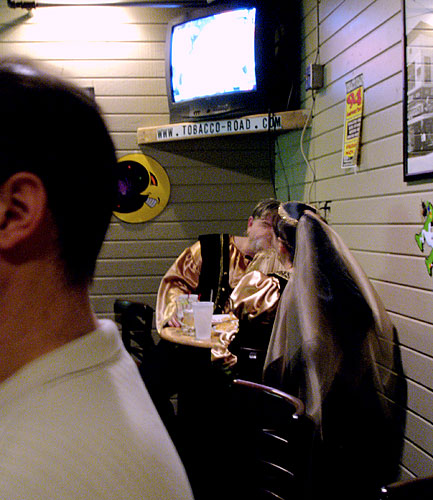How Hollywood loves to show that it believes in true ideals and hates all superficiality and artifice. The industry that is devoted to superficiality and artifice turns its collective and, no doubt, carefully straightened nose up at such frippery as the fashion industry. Or so it would seem is the message of “The Devil Wears Prada”.
The film tries very hard to be on the side of Andy Sachs, the idealistic young fledgling journalist, who comes to New York and applies for jobs in magazines and newspapers. Of course, she gets ignored until, unexpectedly, she is interviewed for the job of the second PA to Miranda Priestley (Meryl Streep), all-powerful editor of the biggest and glossiest fashion magazine, “Runway”. Andy and her friends are rather snooty about the fashion industry (well, all but one who appears to understand it) and she shows it by her lack of interest in the subject, dowdy clothes and complete inability to deal with the problem of being Miranda’s PA.
Then she is taken in hand by Miranda’s second in command, played with kindly waspishness by Stanley Tucci, who does his best to explain what it is all about to Andy. Failing in that, he dresses her in wonderful clothes, which are a little hit and miss, as they would be on a young woman, however pretty, who has not really acquired a style of her own. Andy gradually becomes so efficient that even Miranda appreciates her and starts pushing her ahead of PA No 1, Emily. Andy plays along, gets to go to the Paris shows, without ever apparently really acquiring any real knowledge of the world she lives in and has a one-night stand with a well-known writer.
Then, suddenly, through a series of machinations, she understands just how ruthless the fashion world is, chucks in her job together with her ever-demanding mobile phone, which she throws into one of the fountains in the Tuileries gardens (the Paris geography is a little sketchy), realizes that she has lost her ideals and goes back to them by becoming ….a journalist. And, of course, nobody ever gets shafted in “real” journalism.
The problem with this reading, the intended one, as I suspect, is that it is absolutely impossible to take the silly, supercilious little chit seriously. Neither she, nor her hipster friends appear to have any interests beyond feeling superior to the fashion industry. Soooooooo superficial.
As against that we have two superb characters who speak for the fashion industry. There is Meryl Streep’s Miranda Priestley, the workaholic slave-driver and bitch-queen, who, undoubtedly, has the best lines, the best make-up and the best wardrobe. And there is Stanley Tucci’s Nigel, her second in command, the man who eventually gets shafted as Miranda fights to preserve her own job.
It is not just that they have the best lines, many of which are now being repeated by delighted viewers, they are also articulate in their understanding and defence of the fashion industry. When Andy chuckles over a couple of belts that look exactly alike to her and produces a spurious apology about not understanding “all this stuff”, she gets a withering lecture from Miranda who explains coldly and meticulously just how the creative minds of the fashion industry influence the lives even of people who are “too intellectual to care what they put on their backs”. When Andy weeps about Miranda not being nice to her, Nigel tells her in no uncertain terms how utterly useless her attitude makes her for her job and to her colleagues. Fashion journalism is highly professional and very hard work.
There is, I suspect, a real problem here. Hollywood may talk idealism but it does not really know much about it. It may decry superficiality and artifice but those are what it understands best, can analyze and recreate best. There is not a single false note about the character of Miranda or Nigel or, even the PA number 1, Emily, played excellently by a young British actress, Emily Blunt. When it comes to the idealistic hipsters, they do not come to life except, occasionally, to irritate the viewer. There are several mis-steps with them. Would a young rather impoverished couple live in Lower East Side? How does Andy manage to remember the ambassador at the grand reception, whose face Emily has momentarily forgotten? Why exactly does a would-be journalist not know the identity of the editor of one of the biggest and glossiest monthlies in New York, which publishes feature articles all the time? The last of those questions is easily answered: because she thinks it is all beneath her. But what kind of a “real” journalist will she make as she apparently does not think research is of any importance?
Most of the reviewers, who, despite their supposed cynicism, tend to accept the point of view a film is promoting, were rather disappointed by Anne Hathaway who plays Andy but, naturally enough, fell in love with Meryl Streep’s Miranda. There is nothing wrong with Ms Hathaway or, one assumes, her acting. But to be cast as the idealistic young heroine only to find that the part is really one of a real fluff-head, could be quite galling. Especially, as the film has produced an unexpected heroine: Miranda Priestley, the ever-sharp, ever-stylish, every-despotic editor of the superficial fashion magazine.
